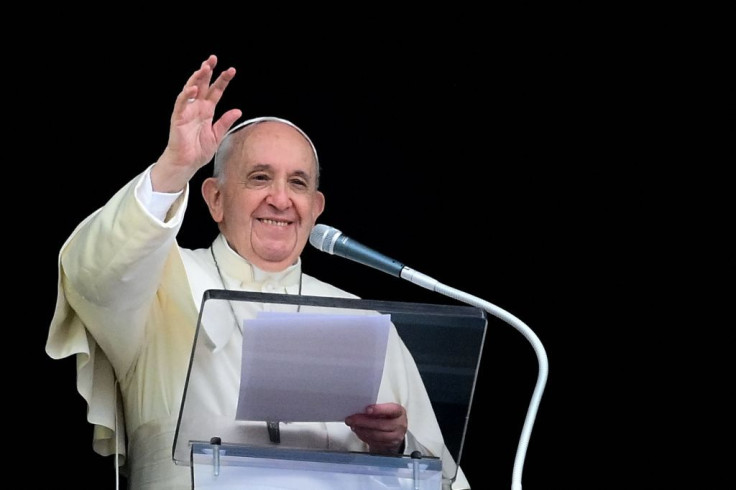
Pope Francis made the historic decision to grant women the ability to vote at an upcoming meeting of bishops, reflecting his desire to give women greater decision-making authority and laypeople more influence in the life of the Catholic Church.
Following years of demands by women for the ability to vote, Francis authorized modifications to the rules regulating the Synod of Bishops, a Vatican body that brings together bishops from all over the world for regular gatherings.
The Vatican released the changes he approved on Wednesday, Apr. 26.
They highlight his vision for the lay faithful playing a bigger part in church activities that have traditionally been handled by clergy, bishops, and cardinals.
Catholic women's groups that have long criticized the Vatican for treating women as second-class citizens immediately praised the move as historic in the 2,000-year life of the church, reports AP News.
"This is a significant crack in the stained-glass ceiling, and the result of sustained advocacy, activism and the witness" of a campaign of Catholic women's groups demanding the right to vote, said Kate McElwee of the Women's Ordination Conference, which advocates for women priests.
Popes have called the world's bishops to Rome for a few weeks at a time to discuss specific issues ever since the Second Vatican Council, the 1960s gatherings that modernized the church.
The bishops cast their votes on specific suggestions at the sessions' conclusion, presenting them to the pope, who then creates a document incorporating their opinions.
Men were the only genders with the right to vote prior to this. However, as part of the proposed modifications, five nuns will join five priests in serving as voting representatives for religious orders.
Francis has also chosen to name 70 non-bishop members of the synod, and he has requested that 50 percent of them be women. They will also cast a vote.
The goal is to include young people among the 70 non-bishop members, who will be chosen by Francis after receiving proposals from regional groups.
"It's an important change, it's not a revolution," said Cardinal Jean-Claude Hollerich, a top organizer of the synod.
A process known as "synodality," which Francis has long favored, will be the main topic of the upcoming gathering, which is set for Oct. 4-29. Its goal is to increase the church's ability to reflect on and respond to the laity.
By the end of the next month, Francis will receive 20 non-bishop member names from the seven regional blocs, from which he will choose 10 to bring the total to 70.
In light of the modifications, 21% of the gathering representatives at the October meeting will not be bishops, with half of that group being women, according to Cardinal Mario Grech, who is in charge of the synod.
He highlighted that the synod itself would continue to have a majority of bishops making the decisions while acknowledging the discomfort that Francis' inclusive vision of the church had caused among the hierarchy.
"Change is normal in life and history," Hollerich told reporters. "Sometimes there are revolutions in history, but revolutions have victims. We don't want to have victims," he said, chuckling.
A British organization called Catholic Women's Ordination, which claims to be committed to battling misogyny in the church, hailed the change but demanded more.
"CWO would want transparency, and lay people elected from dioceses rather than chosen by the hierarchy, but it is a start!" said the CWO's Pat Brown.
Hollerich declined to say how the female members of the meeting would be called, given that members have long been known as "synodal fathers." Asked if they would be known as "synodal mothers," he responded that it would be up to the women to decide.
Francis has done more than any other pope in recent memory to give women more influence in decision-making roles in the church, while yet upholding the Catholic Church's ban on ordaining women as priests.
Despite the fact that he has selected several women to high-level Vatican roles, no woman now leads any of the dicasteries, or important Vatican institutions or departments.
© 2025 Latin Times. All rights reserved. Do not reproduce without permission.




